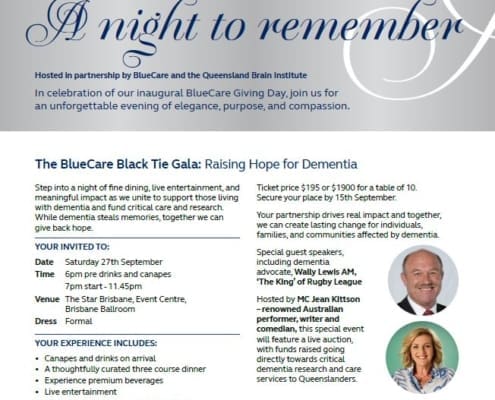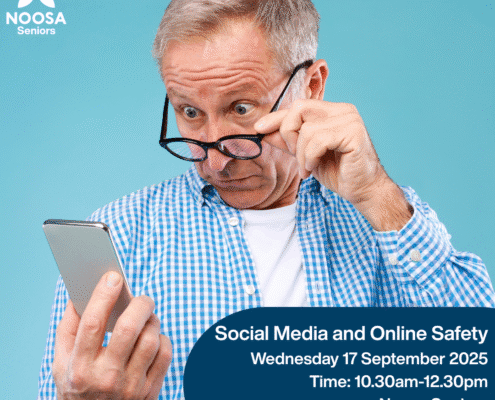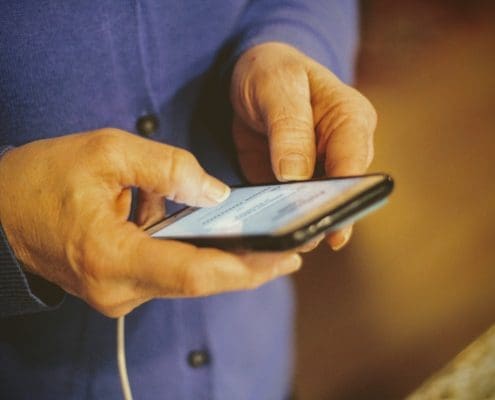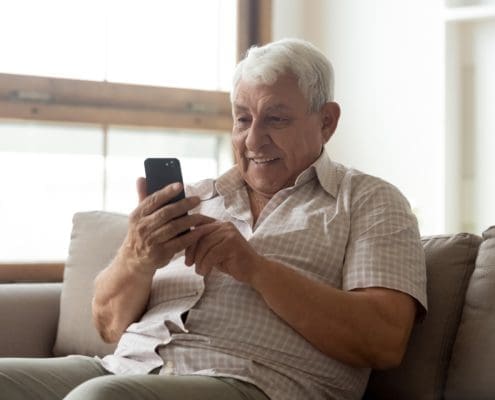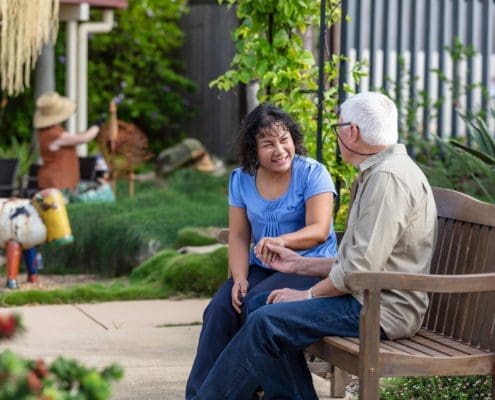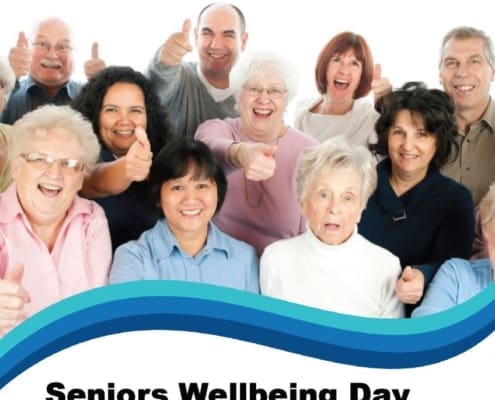 https://seniorsenquiryline.com.au/wp-content/uploads/Capture.jpg
746
848
Emily Gould
https://seniorsenquiryline.com.au/wp-content/uploads/logo-sel-400x49-yellow.png
Emily Gould2025-09-26 16:49:072025-09-26 16:49:10Redcliffe Seniors Wellbeing Day
https://seniorsenquiryline.com.au/wp-content/uploads/Capture.jpg
746
848
Emily Gould
https://seniorsenquiryline.com.au/wp-content/uploads/logo-sel-400x49-yellow.png
Emily Gould2025-09-26 16:49:072025-09-26 16:49:10Redcliffe Seniors Wellbeing DayDementia Action Week
15 – 21 September 2025
Dementia Action Week 2025 will be held from Monday 15 to Sunday 21 September, which includes World Alzheimer’s Day on Sunday 21 September.
Dementia Action Week is a major leadership, awareness and advocacy campaign led by Dementia Australia as the peak body for people living with dementia, their families and carers in Australia. Visit the Dementia Australia website to find events near you.
What is dementia?
From Dementia Australia
Dementia describes a collection of symptoms caused by disorders affecting the brain.
It is not a normal part of getting older, and it isn’t one specific disease. Instead, it’s a broad term that covers a number of different medical conditions. Those conditions include Alzheimer’s disease, vascular dementia, the Lewy body dementias and more.
The effects of dementia vary from person to person, but generally, dementia affects mood, memory, thinking and behaviour.
Though most people will not get dementia, it is important to realise that it can happen to anybody and it has been found to be much more common after the age of 65. In Australia, there are an estimated 433,300 people living with dementia. It is the leading cause of death for women, and the second leading cause of death overall, with first being coronary heart disease.
There’s currently no known cure for dementia, but there are treatments for many of the symptoms. Some people with dementia lead active and fulfilling lives for many years after their diagnosis.
See dementia.org.au/about-dementia to read the full article.
Dementia-friendly communities
A dementia-friendly community is a place where people living with dementia, their families, community members and businesses create spaces that are respectful, supportive and empowering. Dementia-friendly communities are vital to reduce the risk of social isolation of people living with dementia and support them to remain engaged and empowered.
Find a Dementia-Friendly Group
Across Australia, hundreds of passionate community groups are collaborating with people impacted by dementia to create social activities, link people to services and supports, and increase awareness and understanding in the community.
To learn more and find a group near you, click here.
Become a Dementia Friend
A Dementia Friend is someone who wants to gain a better understanding of dementia so they can support people living with dementia in ways that are important to them. This could be as simple as offering patience in a conversation or challenging stigma, or as big as setting up a community action group.
By becoming a Dementia Friend, you will be joining a movement towards a more dementia-friendly future. Learn more.
Dementia support services
This is a very brief overview of some services who support people who are impacted by dementia. Call the Seniors Enquiry Line to be referred to a service near you.
Dementia Australia
Dementia Australia is the national peak body that supports people living with dementia, their families and carers. They advocate to government and in the community for positive change, support vital research and health workers providing essential care; equip communities with tools and knowledge to make our society more dementia friendly. Some services include:
Counselling
Dementia Australia offers free, confidential, professional counselling for individuals, families, couples and professional carers at all stages of a dementia journey. Everyone experiences dementia differently. Counselling can help you to:
- Better understand the impact of dementia
- Develop strategies to respond to feelings of stress or mixed emotions
- Plan for the future, by setting goals and seeking referrals for practice support.
Post-Diagnostic Support
Dementia Australia offers post-diagnostic support to people of all ages diagnosed with dementia, or people assessed with mild cognitive impairment as well as their family and carers. These sessions are designed to help you manage your diagnosis and live well.
A skilled Dementia Australia staff member will be your single point of contact over six sessions. Support following your diagnosis can help you:
- Increase your understanding of dementia
- Plan support services and networks
- Develop personal and lifestyle strategies to help you live well
- Prepare and plan for any changes
Visit dementia.org.au for more information.
National Dementia Helpline
1800 100 500
Free and confidential, the National Dementia Helpline, provides expert information, advice and support, 24 hours a day, seven days a week, 365 days a year.
The National Dementia Helpline helps those:
- living with dementia
- who know and care for someone with dementia
- working with people with dementia
- who are concerned about their own thinking, mood and memory
- who have mild cognitive impairment
The helpline can provide emotional support and guidance and connect you to Dementia Australia and community support services and programs. discuss government support, including My Aged Care, NDIS, and Dementia Behaviour Management Advisory Service (DBMAS).
Alzheimer’s Queensland
1800 639 331
Founded in 1983, Alzheimer’s Queensland (AQ) is Australia’s largest dementia association, which provides many supports to people with Alzheimer’s and their support networks:
- aged care accommodation
- in-home support services
- dementia workshops
- carer support groups
- Ipswich Working Carer’s Program
Learn more at alzheimersonline.org.
Dementia Support Australia
1800 699 799
Dementia Support Australia is a free, 24/7 nationwide support service providing:
- Dementia Behaviour Management Advisory Services
- Specialist Dementia Care Programs
- Severe Behaviour Response Teams
- Hospital to Aged Care Dementia Support Program
- Carer Conversations
- GP Advice Service
- information on understanding Behaviour Support Plans
Learn more at dementia.com.au.
BrainTrack app
BrainTrack is a free app that helps you monitor and understand changes in cognition over time, which you can use to start a conversation with your GP. The app will help you explore this common concern, providing brain health information through fun, travel-themed games that test your cognition. The resulting conversation and monitoring may lead to an earlier diagnosis of dementia.
Users are prompted to log in monthly, play the games and receive data on their cognition. The data is given to you as a report that can be shared with your GP, to initiate formal cognitive assessment.
Disclaimer: While BrainTrack does not replace the need for formal cognitive assessment, it supports the process by offering an easy way to track changes over time, and even picking up on cognitive concerns the user may not be aware of themselves. For many, it will offer reassurance and offer tips around maintaining brain health.
For more information and to download the app, visit dementia.org.au/braintrack
What is a dementia doula?
By Leah Keating, LK Dementia Doula Services
A Dementia Doula is a person who provides non-clinical compassionate care to someone living with dementia and their families, from pre-diagnosis through to end-of-life palliative care. Supporting the person to document their wishes and how they want to spend the end of their life, when the time comes.
A Dementia Doula is adaptive, supportive, and responsive to the changing needs of not just the person living with dementia, they also support the families too. They educate and help families on how to provide comfort focused care. They empower families with strategies on how to communicate with their loved one as they encounter the different stages of dementia, as the brain changes with this disease.
When their end-of-life is approaching a Dementia Doula supports families to enact the wishes that their loved one had documented and make sure that they have the access they deserve to high quality palliative care.
If you would like to know more, please contact Leah Keating, Dementia Doula, on 0431 387 537 or email her at leahkeating2019@gmail.com.
.
Dementia Doulas Australia
Dementia Doulas Australia is a national, registered charity organisation, shattering isolation by fostering a supportive community that ensures every family has a Dementia Doula by their side.
Dementia Doula Australia offers an Online Family Community to family members across Australia who have been impacted by dementia. Membership includes monthly guest speakers, forums, information sessions.
For more on Online Family Community visit, dementiadoulas.org.au/programs/online-family-membership-community
If you would like to know more, visit dementiadoulas.org.au or email hello@dementiadoulas.org.au
Safe & Found Program
Queensland Police Service and Australian MedicAlert Foundation
The Safe & Found Program is a partnership between the Queensland Police Service and not-for-profit organisation Australian MedicAlert Foundation.
Lost Person Behaviour Profile
If you have a loved one that you are concerned may go wandering or missing, you can create a Lost Person Behaviour Profile.
This resource is proven to reduce time, and in turn the size of the search area, by ensuring Police have immediate access to details such as a recent photo, previous addresses, habits and behaviours and current health status of the missing person.
Safe & Found ID bracelet
The Safe & Found bracelet is designed to be worn in comfort all day, every day. It has your emergency contact’s details engraved on it so they can be contacted as soon as possible.
For more information about Safe and Found or to sign up your family member or loved one, visit safeandfound.org.au.








